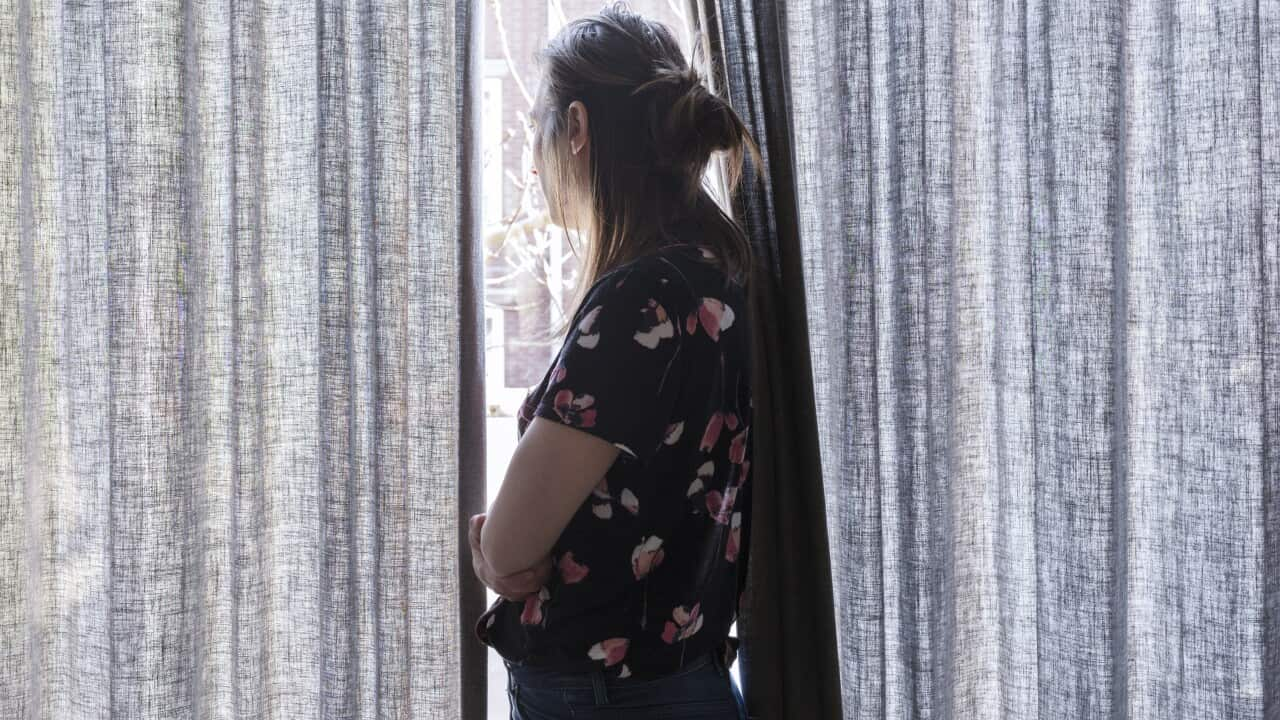Warning: This story contains references to domestic and family violence.
Tens of thousands of people, mainly women, have applied for an emergency payment designed to support those fleeing domestic and family violence - but less than half have received it.
Recent data provided by the federal government shows 57,041 applications for the Escaping Violence Payment (EVP) trial were received from 19 October 2021 to 30 September 2023.
Of the total number, 29,437 applications (52 per cent) were deemed eligible, and 24,471 (43 per cent) had received a payment, as at 30 September. A precise figure for the number of applications found ineligible was not provided.
Kate Fitz-Gibbon, Chair of Respect Victoria, which works for the prevention of family violence and violence against women in that state, said it's crucial to understand the reasons behind the high number of applicants who don't proceed to a payment.
"The Australian government has committed to delivering upon which seeks to eliminate gender-based violence in one generation. Doing so will require continual learning and evaluation of what works in practice," she said.
"The data released points to the need to question whether the EVP scheme is meeting the needs of victim-survivors and delivering upon its objectives to support their safety at the point of relationship separation."
In October 2021, the previous Coalition government with the aim of reducing financial barriers associated with leaving violent intimate partner relationships.
The scheme, run by national provider UnitingCare Network, offers up to $5,000 in financial assistance, which can include up to $1,500 in cash or an equivalent payment and the remainder in goods, services and supports for people whose living situation has recently changed, or is about to change, as a result of domestic violence.
Eligible applicants must be Australian citizens or permanent residents who are aged over 18, have experienced intimate partner violence and are going through financial hardship within a 12-week window of their claim as a result of that violence.
In last May's federal budget, the Albanese government committed $38.2 million to extend the trial until 31 January 2025.
The recent cumulative national data was provided by the Department of Social Services last December in response to a question on notice from Greens Senator Janet Rice the previous month.
According to the data, approximately $136 million has been provided to victim-survivors since the EVP trial started in October 2021.
About 89 per cent of clients identified as female, and 9 per cent male. Fifty-four per cent have one or more dependents under the age of 18.
Financial independence 'key to ensuring a victim-survivors' safety'
The data also outlines that 35,358 applications "did not proceed to completion through the assessment process". A department spokesperson said this figure was part of the total applications received, and represents the number of applications and enquiries that for a variety of reasons, including duplicate applications, did not progress to payment.
Fitz-Gibbon said that any opportunity to support a victim-survivor to leave an abusive relationship is a "critical opportunity to prevent future violence and an escalation of harm within that relationship".
"It is important for us to better understand why there is such a high number of applicants that do not proceed to a payment and whether the scheme could be amended to better meet the safety needs of these victim-survivors or indeed whether another policy solution should be considered," she said.
"We know that the point of relationship separation is an extremely risky time for victim-survivors, and that financial independence is key to ensuring a victim-survivors' safety.
"The payment scheme could be an incredibly important initiative that addresses both these points but the data released certainly raises the question of whether the trial is operating as effectively as possible so far."
When asked why applicants may have been deemed ineligible, the department spokesperson said that the service provider "does not collect data on the specific reasons why applications do not proceed".
"However, the service provider has advised that the most common reasons are because the eligibility criteria were not met, the service provider was unable to recontact the applicant or the applicant otherwise determined not to proceed with the application."
The department's response to the Senate question also states that in some of the latter cases, "the applicant may have returned to the relationship or otherwise determined not to proceed with the application".
The spokesperson said people who do not meet eligibility requirements are provided with some immediate support from the service provider, along with referrals to other available services and programs.
SBS News contacted UnitingCare for comment but it deferred to the Department of Social Services.
Karen Bevan, chief executive of Full Stop Australia, said we need to work towards a system "that is responsive to people impacted by domestic and family violence".
"This payment needs to get to the people, mostly women and children in crisis, who need it most when they need it," Bevan said.
"If eligibility criteria are difficult to navigate for victim-survivors, who already face enormous barriers in help-seeking, then reviewing the system through a trauma-informed lens is needed.
"Feedback from victim-survivors of domestic and family violence about barriers and challenges and what might make the system more responsive is a critical first step."
'Difficulties in establishing payment eligibility'
An independent evaluation to review the effectiveness, efficiency and appropriateness of the EVP trial was published last May.
The report looked at difficulties in establishing evidence of eligibility, for example demonstrating a person's experience of domestic and family violence, financial hardship and their changing living circumstances or plan to leave.
It also found people from culturally and linguistically diverse communities and older Australians were under-represented, along with those living in remote areas in the Northern Territory.
"This likely reflects a combination of the eligibility criteria being limited to intimate partner violence, low awareness and the accessibility of the application process," the report said.
Ultimately, it found the trial to be "highly effective" - although not for all populations, and that its delivery had improved after early inefficiencies. The model was found to be appropriate for those who are able to access the online application with little support, and who cannot or choose not to access other services.
In May, the government announced it had reduced average waiting times between a person's initial submission to receiving a first payment from 33 to six days.
According to the recent data, as at 30 September 2023, applicants were receiving person-to-person contact within an average of eight days from submitting an application, and an eligibility assessment was starting within five days. Applicants were receiving a payment within three days of having their eligibility confirmed.
The report suggested focus areas for the remainder of the trial, including timeliness of access, promotion of the EVP to wider populations, and accessibility and inclusivity of the application and assessment process.
Future considerations also included extending the eligibility criteria to reflect equity for temporary visa holders and experiences of other types of violence.
Also in 2021, the previous government started a separate $3,000 payment pilot for temporary visa holders experiencing violence. This has also been extended until January 2025 . In July last year, the Albanese government announced
The department spokesperson said the EVP program focuses on supporting victim-survivors of intimate partner violence as the most prevalent form of family and domestic violence. According to the latest , one in four women and one in 14 men have experienced this form of violence since the age of 15.
"The EVP is part of a suite of government-funded FDV (family and domestic violence) services and programs that aim to provide a holistic response to those experiencing violence including 1800RESPECT, emergency relief, financial counselling, and safe places," the spokesperson said.
"The government is considering the issues raised in the independent evaluation report, including policy settings in relation to the future directions for the program."
If you or someone you know is impacted by domestic violence, call 1800RESPECT on 1800 737 732 or visit . In an emergency, call 000. , operated by No to Violence, can be contacted on 1300 766 491.














